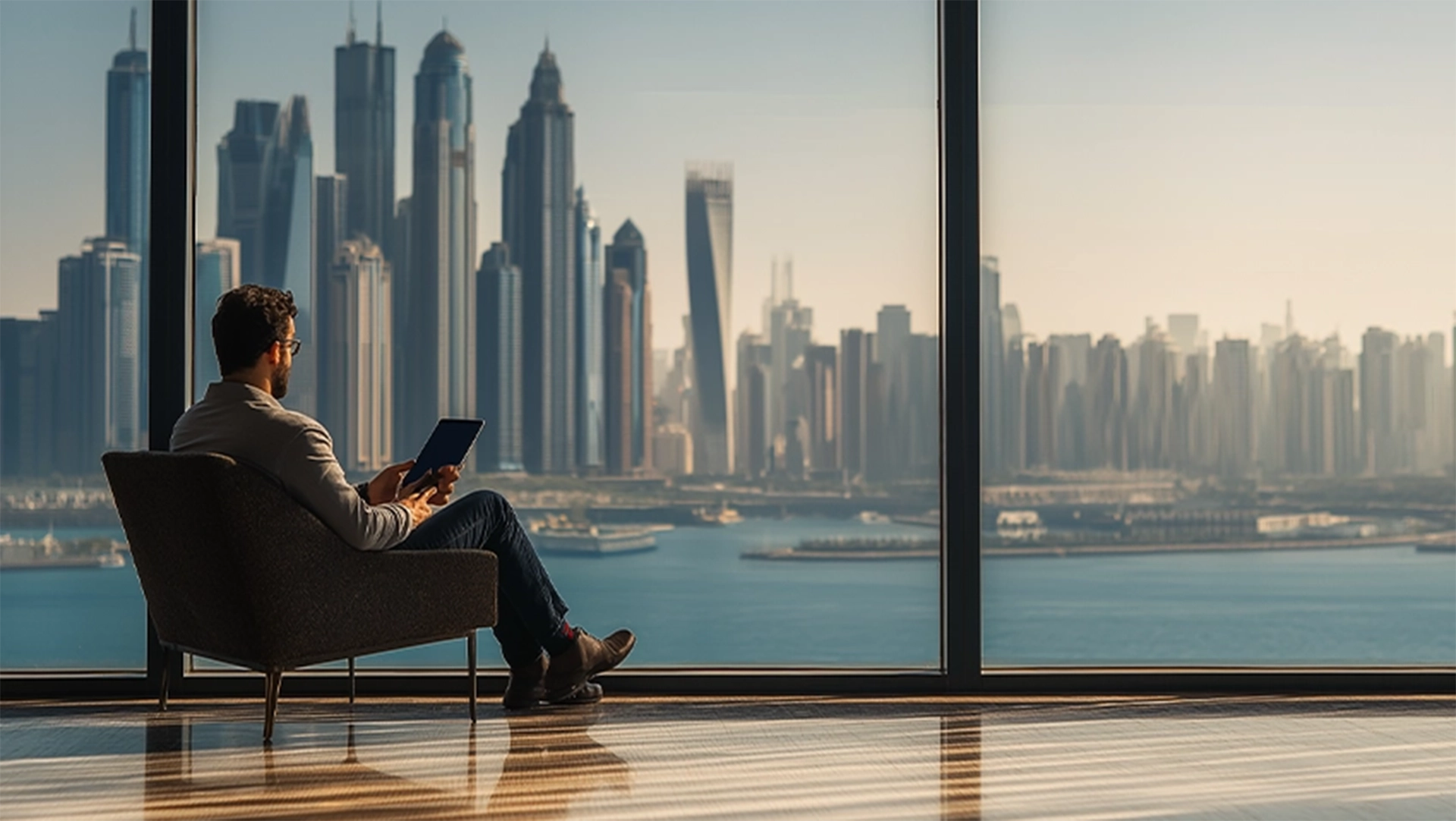In a world where economic uncertainties have become the new normal, Dubai’s real estate market continues to defy global trends. As we navigate mid-2025, investors and property analysts are closely watching Dubai’s remarkable resilience compared to traditional investment hotspots such as London, Singapore, and Hong Kong. This comprehensive analysis examines the factors influencing Dubai’s property market performance and identifies key indicators to monitor for the remainder of 2025.
Dubai’s Market Performance: The 2025 Story So Far
Dubai’s real estate sector has demonstrated impressive momentum in the first half of 2025. Residential sales prices have surged 20% year-to-date, while rental rates have climbed 19% compared to the same period last year. This growth comes against a backdrop of continued population expansion, with Dubai growing 5% year-on-year to approximately 4 million residents as of June 2025.
“The fundamentals supporting Dubai’s real estate market remain exceptionally strong,” notes Sarah Rahman, Chief Economist at Emirates Investment Research. “While other global cities struggle with post-pandemic adjustments and geopolitical tensions, Dubai has positioned itself as both a haven and a growth opportunity.”
This exceptional performance raises a critical question: What exactly is Dubai doing differently from other global property markets?
Dubai vs. Global Property Markets: A Comparative Analysis
London: Struggling with Regulatory Uncertainty
London’s property market continues to grapple with post-Brexit challenges and political instability. The average price growth in prime London areas has remained subdued at 2.3% in 2025, significantly trailing Dubai’s performance. Regulatory complexities and higher property taxes have deterred international investors who once flocked to the UK capital.
Singapore: Supply Constraints vs. Cooling Measures
Singapore’s property market, while stable, has been intentionally restrained by government cooling measures implemented in late 2024. Price growth has been limited to 5.7% in 2025, as authorities attempt to maintain affordability. Unlike Dubai, Singapore faces severe land constraints, limiting new development opportunities.
Hong Kong: Geopolitical Headwinds
Hong Kong’s luxury property market has experienced negative growth of -3.2% in 2025, continuing a troubling trend from previous years. Political uncertainties and mainland China’s economic challenges have dampened investor appetite, creating a stark contrast with Dubai’s booming market.
Dubai’s comparative advantage stems from three key factors:
- Lighter regulatory touch – Unlike competitors, Dubai maintains investor-friendly policies with minimal property taxation
- Aggressive infrastructure development – Continuing to expand capacity ahead of demand
- Strategic visa reforms – Enhanced Golden Visa program attracting wealthy individuals seeking tax efficiency
The Golden Visa Effect: Dubai’s Secret Weapon
The expanded Golden Visa program introduced in early 2024 has proven transformative for Dubai’s real estate market in 2025. The program, which offers a 10-year residency to property investors who purchase real estate valued at AED 2 million or more, has attracted significant capital from Europe, Russia, China, and increasingly, the Americas.
“We’ve seen a 47% increase in Golden Visa applicants in Q2 2025 compared to the same period last year,” explains Mohammed Al Shaikh, Director at the Dubai Land Department. “These aren’t just passive investors – they’re often relocating families and businesses, creating multiplicative economic effects.”
This influx of wealthy individuals has particularly benefited the luxury segment, with properties priced above AED 10 million seeing transaction volumes increase by 63% year-on-year.
Supply-Demand Dynamics: Is a Correction Coming?
New Supply Pipeline
One potential concern for Dubai’s market stability is the robust supply pipeline. Approximately 43,000 new residential units are scheduled for delivery in the second half of 2025, primarily concentrated in emerging communities like Dubai South, Jumeirah Village Circle, and Mohammad Bin Rashid City.
However, strong absorption rates suggest this new supply will likely be met with adequate demand. Population growth projections indicate Dubai will add approximately 200,000 residents annually through 2027, creating sustained housing needs across all segments.
Sector-Specific Performance
Not all segments of Dubai’s real estate market are performing equally:
- Residential: Villas and townhouses continue to outperform apartments, with 25% vs. 17% price growth, respectively
- Commercial: Office space in prime locations has seen 14% rental growth, driven by multinational corporations establishing regional headquarters
- Retail: Shopping mall space has experienced a modest 6% growth, reflecting changing consumer behaviors
- Hospitality: Hotel apartments and serviced residences have emerged as top performers with 22% ROI, benefiting from tourism recovery and extended-stay trends
Investment Signals: What to Watch for H2 2025
For investors considering Dubai’s real estate market for the remainder of 2025, these key signals merit close attention:
- Interest rate trajectories – The UAE Central Bank’s policies typically follow the US Federal Reserve; anticipated rate cuts in Q3 2025 could further stimulate Dubai’s property market
- New mega-projects – Watch for announcements of transformative developments that historically drive value in surrounding areas
- Rental yield compression – Currently averaging 7.2% across Dubai, any significant decline could signal overvaluation
- Transaction volumes – Any sustained decrease in monthly transactions would be an early warning sign
- Foreign buyer composition – Diversification of investor nationalities indicates broader market resilience
Conclusion: Sustained Outperformance with Managed Risks
Dubai’s real estate market appears well-positioned to continue outperforming global alternatives through the remainder of 2025. The combination of population growth, investor-friendly policies, and infrastructure development creates a compelling value proposition even amid global economic turbulence.
However, prudent investors should remain selective, focusing on properties with strong rental potential and locations benefiting from infrastructure improvements. While a dramatic correction appears unlikely, the substantial price appreciation of the past 18 months suggests more moderate growth ahead.
For those considering entry into Dubai’s property market, the second half of 2025 offers a window of opportunity before potential interest rate cuts drive further price increases in early 2026.




